In a first for Australian television, Little J & Big Cuz brings young Indigenous children animated characters and engaging stories in a contemporary world. It offers a proud and positive view of Aboriginal Australia and the opportunities for learning within it. Along with the series, there are Little J & Big Cuz education resources that provide support for Early Years (K-2) educators with ideas and options for including Aboriginal and/or Torres Strait Islander knowledge, understanding, and skills in their teaching and learning programs.
The learning documents for each episode have been created as a springboard for engaging with and embedding Aboriginal and/or Torres Strait Islander perspectives and pedagogies in Early Years education environments from K–2. The intention is to provide a starting point for educators as they:
- engage with local and broader Aboriginal and/or Torres Strait Islander communities to learn from and with their communities.
- engage with local and broader Aboriginal and/or Torres Strait Islander communities to build authentic relationships.
- consider the transitions that take place in children’s lives every day and the role of educators to work with children and families to support these transitional moments. These moments of transition can be really big moments, such as the transition from early childhood into Primary school, or other moments such as moving from one space into another, or one learning experience to another.
- consider the spaces in their indoor and outdoor environments and the possibilities of the key ideas of Aboriginal and/or Torres Strait Islander knowledge and culture and how these can build on current understandings and create new learning opportunities with children, families and community.
- engage with their local community to grow a language that shares and respects the voices of Aboriginal and/or Torres Strait Islander peoples, their knowledge and their cultures.
The outreach early years education resources have been developed as a springboard – a starting point with the intent that educators consult and work alongside families and communities to develop a curriculum that is culturally appropriate. Taking a consultative approach is a proactive way of ensuring that Aboriginal children and families are actively participating and contributing their Aboriginal worldviews, knowledge and ideas as their learning evolves (EYLF, 2010, p.10).
The resources are accessible for all early childhood education learning spaces, including but not limited to: family day care; play groups; kindergartens; preschools; long day care settings; before- and out-of-school settings, and parents. Though the target audience is Indigenous children transitioning to school, the resources – being rich in Indigenous worldviews, knowledges, pedagogies and curriculum – can enrich any child’s or family’s or community’s understandings of Aboriginal communities and Country, and are thus important for all children and educators.
To watch episodes: Little J and Big Cuz Episodes
To view and download resources: Educational Resources
For more information: Little J and Big Cuz
Reference:
About The Show, Little J and Big Cuz


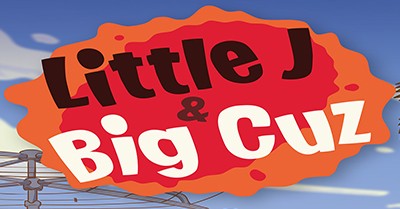
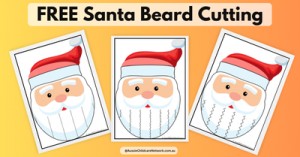
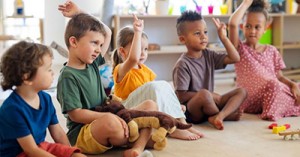
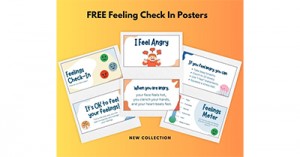
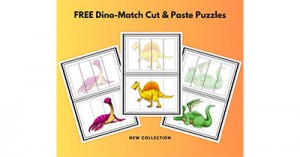
 Open ended questions cannot be responded to with one word answers such as yes or no. These types of questions enables a child to provide
Open ended questions cannot be responded to with one word answers such as yes or no. These types of questions enables a child to provide During your child’s preschool years, an important milestone begins to emerge. This is the development of pre-writing skills. Pre-writing skills are used to encourage, develop
During your child’s preschool years, an important milestone begins to emerge. This is the development of pre-writing skills. Pre-writing skills are used to encourage, develop Open ended materials enables children to play freely. They are objects that have no rules to follow, use or function. Raw materials that can be
Open ended materials enables children to play freely. They are objects that have no rules to follow, use or function. Raw materials that can be An Acknowledgment of the Country is a way of showing respect for the Traditional Owners and can be given by both non-Indigenous people and Aboriginal
An Acknowledgment of the Country is a way of showing respect for the Traditional Owners and can be given by both non-Indigenous people and Aboriginal Language plays an important role in a child’s development. It enables a child to communicate effectively with their family, learn at school, socialize with friends,
Language plays an important role in a child’s development. It enables a child to communicate effectively with their family, learn at school, socialize with friends, Like adults, children have to deal with their own stress in life. Moving house, starting a new school, preparing for a new sibling - these are
Like adults, children have to deal with their own stress in life. Moving house, starting a new school, preparing for a new sibling - these are Playdough is such a versatile material. It provides numerous benefits to children as they manipulate it, it is safe and soothing and provides children with
Playdough is such a versatile material. It provides numerous benefits to children as they manipulate it, it is safe and soothing and provides children with Teaching children about sustainability enables them to appreciate and respect the natural environment. Early childhood services can provide meaningful hand on learning experiences in order
Teaching children about sustainability enables them to appreciate and respect the natural environment. Early childhood services can provide meaningful hand on learning experiences in order Recycling is an important concept that teaches children to care for the environment. It encourages children to be responsible and show a growing appreciating for
Recycling is an important concept that teaches children to care for the environment. It encourages children to be responsible and show a growing appreciating for When children apply paint to paper, glue things together, or pound a lump of clay, they experiment with colour, shape design and texture.
When children apply paint to paper, glue things together, or pound a lump of clay, they experiment with colour, shape design and texture.



